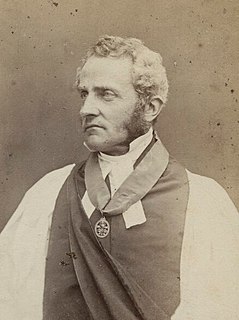A Quote by Edward Bulwer-Lytton, 1st Baron Lytton
There is no man so great as not to have some littleness more predominant than all his greatness. Our virtues are the dupes, and often only the plaything of our follies.
Related Quotes
In the true, original, catholic, evangelical religion of Jesus Christ, and in this alone, all the divided religions of Christendom find their union, their repose, their support. Find out His mind, His character, His will; and in His greatness we shall rise above our littleness; in His strength we shall lose our weakness; in His peace we shall forget our discord.
Success is in the student, not in the university; greatness is in the individual, not in the library; power is in the man, not in his crutches. A great man will make opportunities, even out of the commonest and meanest situations. If a man is not superior to his education, is not larger than his crutches or his helps, if he is not greater than the means of his culture, which are but the sign-boards pointing the way to success, he will never reach greatness. Not learning, not culture alone, not helps and opportunities, but personal power and sterling integrity, make a man great.
The student is half afraid to meet one of the great philosophers face to face. He feels himself inadequate and thinks he will not understand him. But if he only knew, the great man, just because of his greatness, is much more intelligible than his modern commentator. The simplest student will be able to understand, if not all, yet a very great deal of what Plato said; but hardly anyone can understand some modern books on Platonism.




































